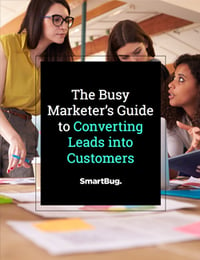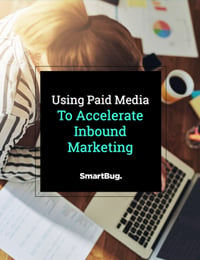
3 Ways of Lowering CPC in Google Ads
February 19, 2020
Your Google Ads CPC is dependent on multiple factors, including the industry you’re advertising in, how competitive it is, and how robust your keyword list is. Industries like law and real estate have historically had much higher CPCs, at times ranging between $150–$300.)
If you find yourself paying more than what’s profitable for your paid advertising, here are three tests that can help lower your Google Ads CPCs:
Go Long Tail
Using Google’s Keyword Planner tool (or other creative avenues), try finding keywords that people further down the funnel may be searching for. You want to be as specific as possible. For example, if you’re promoting cat toys, a keyword like “cat toys” would not only be more expensive, but it would also be likely to accrue clicks from users who aren’t ready to make a purchase. In contrast, using a long tail keyword like “organic hemp cat toys” will help you reach a qualified audience and will have a lower CPC because there will be less competition.
Using long tail keywords not only helps lower your CPCs, but it also helps improve your conversion rates, which then helps bring a profitable return on ad spend.
You can also use different match types with your long tail keywords. A modified broad keyword—“+organic +hemp +cat +toys”—will open up your ads to searches like “organic biodegradable hemp cat toys”. A phrase match version—“organic hemp cat toys”—will open your ads to searches like “organic hemp cat toys under $10”, while an exact match keyword—“[organic hemp cat toys]”—will show up for “organic hemp cat toys”.
Google Ads updated its algorithm to show close match variations for exact and phrase match variations, so make sure you keep a close watch on the search terms.

Change Your Bidding Strategy
Google Ads offers multiple bidding strategies, including quite a few automated bidding strategies, such as enhanced CPC, maximize clicks, maximize conversions, and others.
A manual bidding strategy provides you the greatest amount of control over your CPC numbers, and you can bid as high as you want. Keep in mind that bidding below Google’s recommended amount will not allow your ads to show, so the recommended amount is the minimum bid you want to have.
You can also test a semi-automated bidding strategy, such as enhanced CPC (ECPC). With ECPC, you tell Google the maximum amount you want to bid, and the algorithm optimizes your ad delivery based on the parameters you’ve set. You want to keep a close eye on your overall performance when you move to ECPC because the algorithm will go through a learning phase, during which your bids may increase and your conversion volume may drop.
Lower Your Keyword Bids
Although your keyword bids are directly related to your ad position, consider how important it is for your business to show up #1 on a search. Experimenting with different keyword bids will provide you with data-driven insight into which ad position works best for maximizing your profits. Sometimes, positions two and three yield the best results.
If you are concerned about seeing a massive drop in conversion volume, you can start by lowering your bids by $0.50–$1, and letting your ad run for a week (based on search volume), and analyzing how that impacts your results.
Conclusion
Ultimately, your CPCs need to be profitable and should help you meet your overall marketing objectives. If your primary goal is to generate more lead volume, testing one or all of these strategies will help you determine which strategy works best for your business and industry.
It takes a lot of strategic experimentation and time to get your Google Ads campaigns to reach peak performance. The important thing is to continue testing.

About the author
Khushboo Aulakh was formerly a Paid Media Manager at SmartBug Media. She has worked extensively with B2B clients globally, and is obsessed with data analysis and optimization. Read more articles by Khushboo Aulakh.










